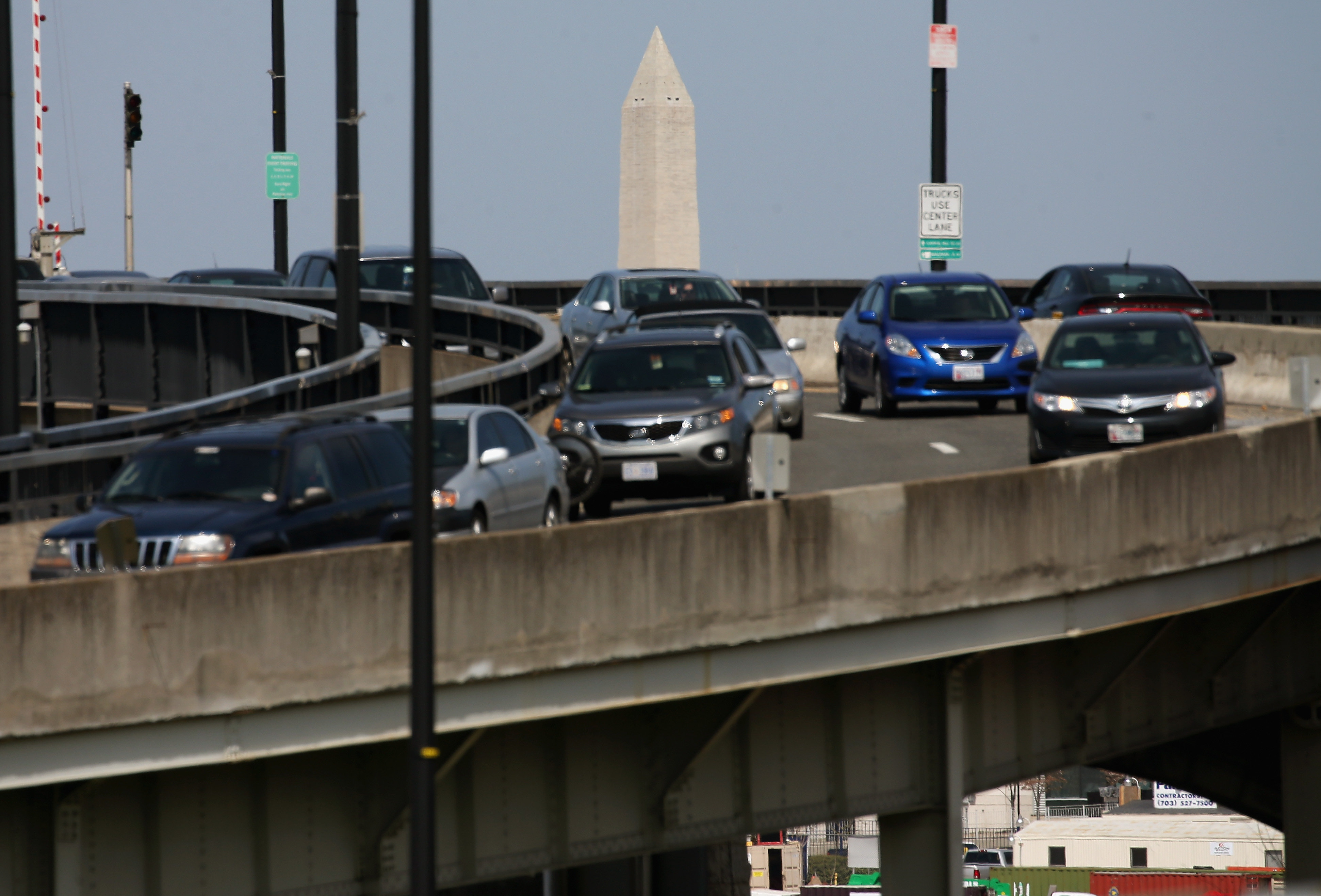Rising incomes, environmentalism could have made highway construction costs more expensive, study suggests


A free daily email with the biggest news stories of the day – and the best features from TheWeek.com
You are now subscribed
Your newsletter sign-up was successful
Ever heard the one about infrastructure week?
As politicians make calls to rectify the decline of U.S. infrastructure investment, a new study from Leah Brooks of George Washington University and Zachary of Liscow of Yale University provides "suggestive evidence" as to how and why infrastructure costs could have changed over time.
After digitizing annual state-level data on interstate highway construction — one of the largest projects in American history — they found that per-mile construction costs increased dramatically over time, tripling between the early 1960s and the 1980s. But why?
The Week
Escape your echo chamber. Get the facts behind the news, plus analysis from multiple perspectives.

Sign up for The Week's Free Newsletters
From our morning news briefing to a weekly Good News Newsletter, get the best of The Week delivered directly to your inbox.
From our morning news briefing to a weekly Good News Newsletter, get the best of The Week delivered directly to your inbox.
Brooks and Liscow ruled out some old theories such as the idea that highway planners procrastinated and left the most geographically challenging routes for last, or that costs for labor and materials changed. Instead, one possible explanation they found is that as incomes and home values rose, so did demand for more expensive interstates. For example, the doubling in real median per capita income between the '60s and '80s accounts for about half the increase in construction costs per mile. States were also building more bridges and ramps as incomes increased. The study suggests all this could have occurred simply because the more money people had, the more willing they were to spend it.
One other factor that the study finds consistent with the data is the rise of the "citizen voice" in the late '60s and early '70s. That includes the growth of environmental activism, the civil rights movement, and homeowners organizing as lobbyists. Basically, more power to the people possibly meant more expensive highway construction. The timing checks out, at least.
The findings, the paper says, are suggestive, but not causal. Still, it looks like a good start in bettering our understanding of infrastructure investment over time. Read the full study here.
A free daily email with the biggest news stories of the day – and the best features from TheWeek.com
Tim is a staff writer at The Week and has contributed to Bedford and Bowery and The New York Transatlantic. He is a graduate of Occidental College and NYU's journalism school. Tim enjoys writing about baseball, Europe, and extinct megafauna. He lives in New York City.
-
 Key Bangladesh election returns old guard to power
Key Bangladesh election returns old guard to powerSpeed Read The Bangladesh Nationalist Party claimed a decisive victory
-
 Judge blocks Hegseth from punishing Kelly over video
Judge blocks Hegseth from punishing Kelly over videoSpeed Read Defense Secretary Pete Hegseth pushed for the senator to be demoted over a video in which he reminds military officials they should refuse illegal orders
-
 Trump’s EPA kills legal basis for federal climate policy
Trump’s EPA kills legal basis for federal climate policySpeed Read The government’s authority to regulate several planet-warming pollutants has been repealed
-
 TikTok secures deal to remain in US
TikTok secures deal to remain in USSpeed Read ByteDance will form a US version of the popular video-sharing platform
-
 Unemployment rate ticks up amid fall job losses
Unemployment rate ticks up amid fall job lossesSpeed Read Data released by the Commerce Department indicates ‘one of the weakest American labor markets in years’
-
 US mints final penny after 232-year run
US mints final penny after 232-year runSpeed Read Production of the one-cent coin has ended
-
 Warner Bros. explores sale amid Paramount bids
Warner Bros. explores sale amid Paramount bidsSpeed Read The media giant, home to HBO and DC Studios, has received interest from multiple buying parties
-
 Gold tops $4K per ounce, signaling financial unease
Gold tops $4K per ounce, signaling financial uneaseSpeed Read Investors are worried about President Donald Trump’s trade war
-
 Electronic Arts to go private in record $55B deal
Electronic Arts to go private in record $55B dealspeed read The video game giant is behind ‘The Sims’ and ‘Madden NFL’
-
 New York court tosses Trump's $500M fraud fine
New York court tosses Trump's $500M fraud fineSpeed Read A divided appeals court threw out a hefty penalty against President Trump for fraudulently inflating his wealth
-
 Trump said to seek government stake in Intel
Trump said to seek government stake in IntelSpeed Read The president and Intel CEO Lip-Bu Tan reportedly discussed the proposal at a recent meeting
